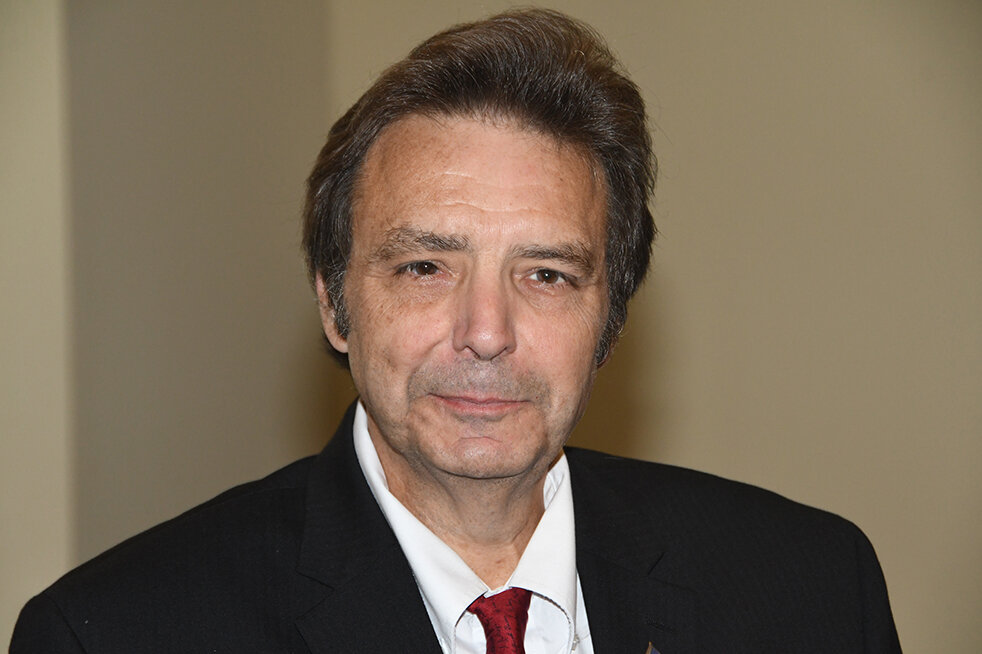Hoff: Criticism of higher education not entirely justified
Dr. Samuel B. Hoff is a George Washington Distinguished Professor Emeritus of history and political science at Delaware State University. He has taught at seven universities around the nation over the last 40 years.
Over a long and mostly enjoyable academic career starting in the 1980s, I have witnessed a number of attacks against higher education from a plethora of sources. However, recent assaults have targeted even the most cherished and respected parts of academia. Worse, there doesn’t seem to be any defenders out there. Until now.
What follows is a response to recent critiques in several areas.
- Leftist orientation/classroom ideologues: The stereotype of university professors as leftover protesters from the 1960s doesn’t cut it anymore. While the political orientation of many professors may be liberal, there should be no relationship between that and what is taught in the classroom. In fact, the best teaching compliment I ever received was a question about my political party affiliation. Inside the classroom, open inquiry, tolerance, civility and idealism are promoted as ways to encourage students to think for themselves. Teaching with a decided stance for which others must subscribe is the antithesis of learning.
- Plagiarism: Academic honesty involves crediting others whose work is being utilized. Whether intentional or not, violations are a serious matter. The artificial intelligence craze has contributed to a perceived increase in such behavior. To academic professionals, plagiarism is unacceptable, and there are often numerous steps in the publication process that limit opportunity for academic dishonesty. However, academia as a whole should neither be soiled by the transgressions of the few nor the mudslinging of the uninformed.
- Data falsification: This charge alleges incomplete or fabricated data in academic research studies. While seemingly more consequential in the medical research, such actions are damaging whenever they occur. Coming from one of the most quantitatively-oriented graduate programs in political science in the country, I learned the value of data analysis methods but also the immense responsibilities inherent in such approaches. To eradicate examples of misuse of data, there should be total transparency and sharing of information, such that other scholars must be able to replicate the results.
- Legacy admissions: This perk of higher education doesn’t have a leg to stand on after the U.S. Supreme Court gutted affirmative action there last summer.
- Tenure: The path to a permanent appointment at a single institution is long and arduous. At the same time, I never heard an academic colleague at any university I worked at during my career state that is why he or she got into the field. Today, there is grumbling that tenured professors are lazy and arrogant. Conversely, tenured professors themselves tend to see the tenure process as under threat from recent trends, such as “post-tenure review.” Personally, I have no problem with the latter change, as long as university administrators furnish incentives for rewarding merit. The greater threat to tenure now comes from what I call “corporate contract creep.” That is, the traditional tenure track process has been replaced with a series of short-term contracts, upsetting loyalty and, ultimately, stability.
- Grade inflation: Because this happens at the Ivys, many assume it has transpired elsewhere. Yale University reported that the average undergraduate GPA for the previous academic year was 3.7 out 4.0. I have seen no reduction in quality where I teach, as the average for grades in my fall 2023 courses was 2.67 out of 4.0. Further, universities like Delaware State University are very effective in retention efforts so don’t need to decrease merit to keep students.
- Crime on campus: The university environment is not immune from violence, regardless of whether the physical setting is urban, rural or in between. Certainly, this is a growing consideration in choice of college. Consistent with the 1990 Clery Act, all universities accepting federal funding must disseminate an annual campus crime report. These days, university leaders understand that safety is a paramount concern and that it must be monitored beyond the campus itself.
- Board/donors: Emanating from several recent high-visibility controversies, it is easy but erroneous to automatically tie university board of trustee members with donors and then to assume that they have an inordinate influence on policy. The fact is that board members at colleges sacrifice much of their time and resources to serve on such entities, often with minimal or no compensation. It is also true that wealthy donors have as much of a right to serve on these governing bodies as anyone else. Granted, there should be openness in knowing where large donations come from, including those from foreign sources.
- Course content and accreditation: Folks should remember that, in addition to required skill classes and classes in the student’s major, there is usually room for electives of the student’s choice. While selected examples of “gut courses” abound, the content of academic courses comes with multiple layers of review, from the department to the dean, from the faculty governing body to the board of trustees. While some courses are naturally an extension of the university’s affiliation, all must adhere to the rules and regulations governing accreditation.
All areas of education should be open to regular review and scrutiny, with the goal of helping students to learn and achieve their goals. Higher education has always been able to maintain its status and reputation, despite periods of intense, unfair criticism. With knowledge of how things really operate, citizens will demonstrate the kind of backing that has made American higher education the envy of the world.
Reader reactions, pro or con, are welcomed at civiltalk@iniusa.org.







